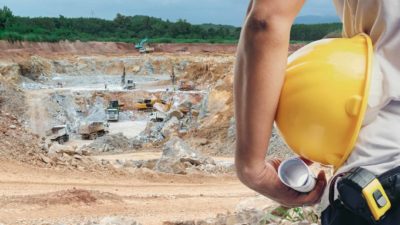BHP Group Ltd (ASX: BHP) shares came under renewed selling pressure yesterday.
Shares in the S&P/ASX 200 Index (ASX: XJO) mining stock closed the day down 1.74% at $39.63 apiece.
That sees BHP shares down a painful 22% since the opening bell on 2 January.
And it looks to add weight to Seneca Financial Solutions' Arthur Garipoli's buy recommendation.
Here's why.
BHP shares 'oversold'
Garipoli noted that the BHP share price has fallen from $50.54 on 2 January to trade at $40.335 on 29 August. That's 1.78% above yesterday's closing price.
According to Garipoli (courtesy of The Bull)
The global miner posted a 3% increase in revenue in fiscal year 2024 when compared to the prior corresponding period. However, profit after tax was down 39%…
Investors have been concerned about softer iron ore prices and slowing growth in China. We believe the shares have been oversold.
In our view, the weaker price provides an attractive entry level for the long term and an opportunity to collect the final dividend.
What's been happening with the ASX 200 mining stock?
The final dividend Garipoli mentions comes out to $1.092 a share, fully franked.
This represents a return of US$3.8 billion to shareholders.
Now if you're looking to collect that final dividend, you'll need to own BHP shares at market close this Friday, 6 September. BHP stock trades ex-dividend on Monday, 9 September. You can then expect to receive that passive income payout on 3 October.
While BHP's FY 2024 total dividend payouts are down 14% from FY 2023, the ASX 200 mining stock still trades at an attractive, fully franked yield of 5.5%.
Other highlights from the ASX 200 miner's full-year results include a 3% increase in revenue from FY 2023 to US$55.7 billion. Underlying profits were up 2% year on year to US$13.7 billion.
Commenting on the miner's results and final dividend payment, management said:
As a result of this strong performance, combined with our healthy balance sheet, we determined a final dividend of 74 US cents per share, a 53% payout ratio, continuing our track record of delivering robust shareholder returns through the cycle.
As for the softer iron ore price concerns, which, as Garipoli noted, have been pressuring BHP shares, those same worries were responsible for the selling pressure in the first two days of this week.
With more weak economic data out from China's factory and residential sectors, yesterday investors awoke to learn the iron ore price had tumbled 4% to US$96.95 per tonne.
But according to Lu Ting, an economist at Nomura Holdings, BHP shares could be set to enjoy a rebound in iron ore prices in the fourth quarter of 2024. That's when Ting expects China's government to significantly ramp up its stimulus efforts.
Ting said:
In the near term, we expect the PBOC [People's Bank of China] to guide commercial banks to lower existing mortgage rates.
For bolder stimulus measures, we think this is more likely to happen in the fourth quarter, when Beijing's concerns over growth become more elevated.








